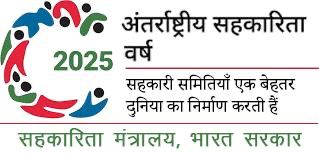परियोजना चयनित राज्यों में छात्र परिणामों और भारत में स्कूली शिक्षा के शासन में सुधार की परिकल्पना करती है। परियोजना के लक्षित लाभार्थी 3 से 18 वर्ष की आयु के बच्चे (प्री-विद्यालय से कक्षा XII तक), शिक्षक और शैक्षणिक संस्थान हैं। स्टार्स में दो प्रमुख क्षेत्रों: एक राष्ट्रीय घटक और पांच उपघटकों के साथ राज्य घटक पर ध्यान केंद्रित किया जाता है:
राष्ट्रीय घटक: राष्ट्रीय स्तर पर, स्टार्स प्रतिधारण, अंतरण और पूर्ण होने की दरों पर एक मजबूत और प्रामाणिक आंकड़ा प्राप्त करने के लिए राष्ट्रीय आंकड़ा प्रणाली को मजबूत बनाने हेतु शिक्षा मंत्रालय को सहयोग करेगा। राज्य प्रोत्साहन अनुदान (एसआईजी) के माध्यम से राज्यों को संवितरण से जुड़े संकेतकों को प्राप्त करने के लिए प्रोत्साहन और सहयोग प्रदान किया जाता है। स्टार्स अंतर्राष्ट्रीय छात्र मूल्यांकन कार्यक्रम (पीआईएसए) में भारत की भागीदारी के लिए बहु-वर्षीय सहायता भी प्रदान करेगा। स्टार्स राष्ट्रीय घटक द्वारा राष्ट्रीय उपलब्धि सर्वेक्षण (एनएएस) को सहायता भी दी जा रही है।
स्टार्स राष्ट्रीय मूल्यांकन केंद्र (परख) की स्थापना में सहयोग करेगा। एनईपी 2020 द्वारा अधिदेशित सभी मान्यता प्राप्त स्कूल बोर्डों के लिए एक मानक-निर्धारक निकाय के रूप में एक राष्ट्रीय मूल्यांकन केंद्र, परख (समग्र विकास हेतु प्रदर्शन मूल्यांकन, समीक्षा और ज्ञान का विश्लेषण) स्थापित किया जाएगा।
राज्य घटक: निम्नलिखित क्षेत्रों पर फोकस करने के साथ ही राज्यों को राज्य प्रोत्साहन अनुदान (एसआईजी नियमावली के अनुसार) के माध्यम से सहायता दी जा रही है:
1. प्रारंभिक वर्षों की शिक्षा को सुदृढ़ बनाना:
- मानकीकृत शिक्षण अधिगम सामग्री द्वारा समर्थित विकास से जुड़े समुचित पाठ्यक्रम।
- एनईपी पैरा सं. 1.3 में उल्लिखित ईसीई और बुनियादी अधिगम के महत्व के बारे में अभिभावकीय भागीदारी की कार्यनीति
- अनुकूल और सकारात्मक व्यवहार के लिए बच्चों में आयु अनुरूप जीवन-कौशल में सुधार हेतु क्षमता विकास
2. राज्य अधिगम मूल्यांकन प्रणालियों में सुधार करना:
- प्रत्येक राज्य में मूल्यांकन प्रकोष्ठ/केंद्र की स्थापना करना।
- ऑनलाइन वस्तु बैंक, ऑनलाइन प्रयोगशालाएँ, खेल, हैकथान आदि विकसित करना (एनईपी पैरा सं.-24.4 )
- विकिपीडिया, गिट हब, स्टैक एक्सचेंज आदि जैसे ऑनलाइन ज्ञान बैंकों के निर्माण के लिए विचारों की समूहिक स्रोत।
- सभी छात्रों के लिए प्रणाली ट्रैक करने का विकास। (एनईपी पैरा 3.3)
- अधिगम अनुभव को बढ़ाने के लिए संवर्धित वास्तविकता और आभासी वास्तविकता जैसी तकनीकों का उपयोग [एनईपी पैरा संख्या-24.4 (डी)]।
- स्कूल शिक्षा बोर्डों की कक्षा 10 और 12 की परीक्षाओं की बाह्य समीक्षा के माध्यम से और अधिक दक्षता आधारित बनाने के लिए परीक्षा सुधार करना।
3. शिक्षक विकास और स्कूल नेतृत्व के माध्यम से कक्षा निर्देश और उपचार को सुदृढ़ करना:
- शिक्षा प्रबंधन में सुधार के लिए आईसीटी-सक्षम दृष्टिकोण विकसित करना। (एनईपी 2020 का पैरा 23.5 और 24.1)
- शिक्षकों और शिक्षक प्रशिक्षकों की डिजिटल दक्षताओं का आंकलन करना [एनईपी पैरा 24.4(जी)]।
- राज्य के संदर्भ में अधिगम परिणामों में अंतराल की पहचान के आधार पर अधिगम में वृद्धि कार्यनीतियों को सुदृढ़ करना। (एनईपी 2020 पैरा संख्या-4.6)
- महामारी बढ़ना, गुणवत्तापूर्ण शिक्षा के वैकल्पिक तरीकों को विकसित करना, प्रौद्योगिकी की सुविधाओं का लाभ उठाना, मौजूदा डिजिटल मंच को अनुकूल बनाना और आईसीटी-आधारित शिक्षा पहलों पर जोर देना, जैसाकि एनईपी 2020 पैरा संख्या- 24.1 में जोर दिया गया है।
- कोविड-19 परिदृश्य के पश्चात, अधिगम परिणामों में सुधार करने के लिए लघु समूह/पीयर अधिगम, वैकल्पिक स्कूल अधिगम, ब्रिज पाठ्यक्रमों और कक्षा से बाहर अधिगम के लिए कार्यढांचा विकसित किया जाएगा।
4. संशोधित सेवा प्रदान करने हेतु शासन और विकेंद्रित प्रबंधन:
- शिक्षक भर्ती, तैनाती और मूल्यांकन में पारदर्शिता सुनिश्चित करने हेतु प्रौद्योगिकी के उपयोग के माध्यम से प्रभावी शिक्षक प्रबंधन जैसाकि एनईपी अध्याय संख्या 5 में उल्लेख किया गया है।
- विभिन्न मॉडलों के माध्यम से गैर-राज्य हिस्सेदारों के साथ साझेदारी के लिए एक राष्ट्रीय व्यापक ढांचे का विकास और राज्यों को प्रोत्साहन देना।
- विभिन्न स्तरों पर शिक्षा प्रबंधन सूचना प्रणाली को मजबूत बनाना (एनईपी पैरा संख्या 23.5)।
- राज्यों में सार्वजनिक शिक्षा प्रणाली के लिए संचार और ब्रांडिंग योजना विकसित करना।
- स्कूल प्रबंधन में सामुदायिक और पंचायती राज संस्थाओं की भागीदारी और शिक्षाविदों की बढ़ोत्तरी के लिए कार्यढांचे और मॉडलों का विकास।
5. स्कूल द्वारा अंतरण कार्यनीतियां विकसित करना:
- कृत्रिम बुद्धिमत्ता, कोडिंग और रोबोटिक्स सहित सरल कौशल और स्टेम/स्टीम (विज्ञान, प्रौद्योगिकी, इंजीनियरिंग, कला और गणित) से संबंधित कौशल पर प्रशिक्षण (एनईपी पैरा संख्या 4.24 और 4.25) ।
- करियर मार्गदर्शन और परामर्श संबंधी सुविचारित प्रावधान।
- छात्रों की अभियोग्यता, व्यक्तित्व और रुचियों को शामिल करने के लिए प्रौद्योगिकी का उपयोग करना।
- इंटर्नशिप के माध्यम से नौकरी के अनुभव के साथ ही उद्यमिता को बढ़ाना और प्रशिक्षुता के लिए संपर्क विकसित करना। व्यावसायिक शिक्षा में नामांकित बच्चों के लिए, समुदाय कार्य की दुनिया के लिए प्रथम स्तर के प्रदर्शन हेतु कीमती अवसर प्रदान कर सकता है।
- माध्यमिक स्तर पर स्कूल से बाहर बच्चों के लिए कौशल विकास के अवसर।
- स्वम-सहायता समूहों की भागीदारी के लिए कार्यढांचा और मॉडल का विकास एवं अधिगम और जीवन कौशल को बढ़ाने के लिए व्यावसायिक शिक्षा और अन्य कार्यकलापों को सुदृढ़ करने में उनके ज्ञान और कौशल का उपयोग करना।
 3 minutes, 29 सेकंड
3 minutes, 29 सेकंड



